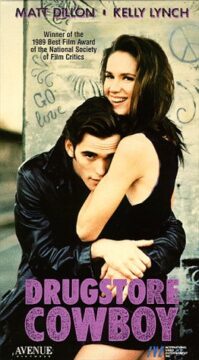Jon Raymond at The Current:
 “The Northwest’s Odyssey”—that’s what the great Puget Sound–born writer Charles D’Ambrosio once called Ken Kesey’s 1964 novel Sometimes a Great Notion. What he meant by that, I think, was that Kesey’s swaggering tale of an antiunion logging family, the Stampers, stands as epic and originary, and possibly the ultimate reference point for any literature written in this region ever after. The book, like the landscape it describes, is a volcanic performance, a thing of great wildness and riverine digression. Charlie was also implying, truthfully enough, that the written word doesn’t go back very far in these parts. He was saying that our most ancient writings are only about three or four generations old.
“The Northwest’s Odyssey”—that’s what the great Puget Sound–born writer Charles D’Ambrosio once called Ken Kesey’s 1964 novel Sometimes a Great Notion. What he meant by that, I think, was that Kesey’s swaggering tale of an antiunion logging family, the Stampers, stands as epic and originary, and possibly the ultimate reference point for any literature written in this region ever after. The book, like the landscape it describes, is a volcanic performance, a thing of great wildness and riverine digression. Charlie was also implying, truthfully enough, that the written word doesn’t go back very far in these parts. He was saying that our most ancient writings are only about three or four generations old.
By this way of thinking, one could argue that Drugstore Cowboy, the 1989 film directed by Portland, Oregon’s own Gus Van Sant, is our New Testament. Unlike Kesey’s novel, with its heroic, Homeric map of the territory, Drugstore Cowboy is a small, moral tale of mercy and transcendence, built on the suffering of a man whose faith is tempted by the tender flesh.
more here.
Enjoying the content on 3QD? Help keep us going by donating now.
